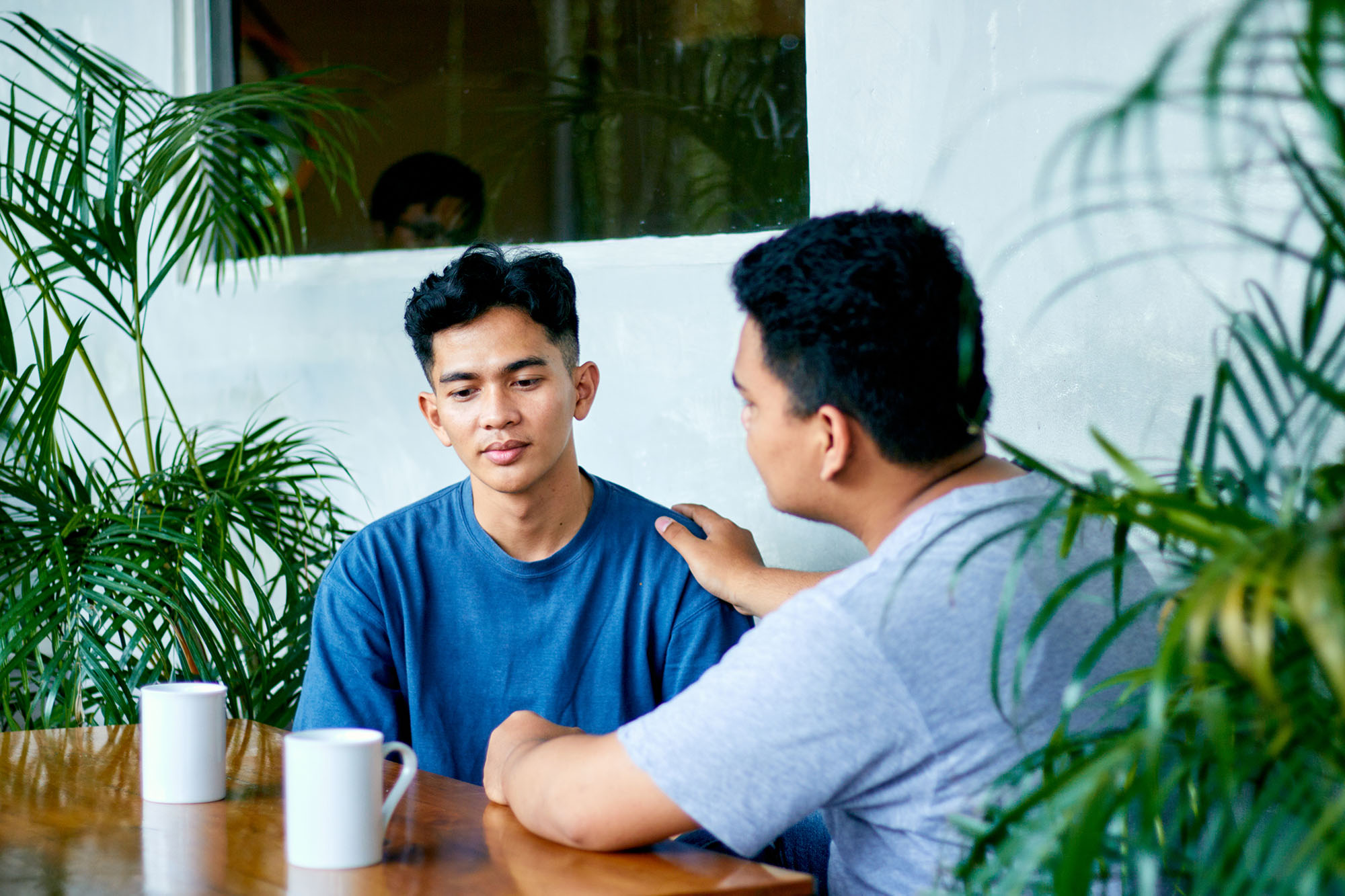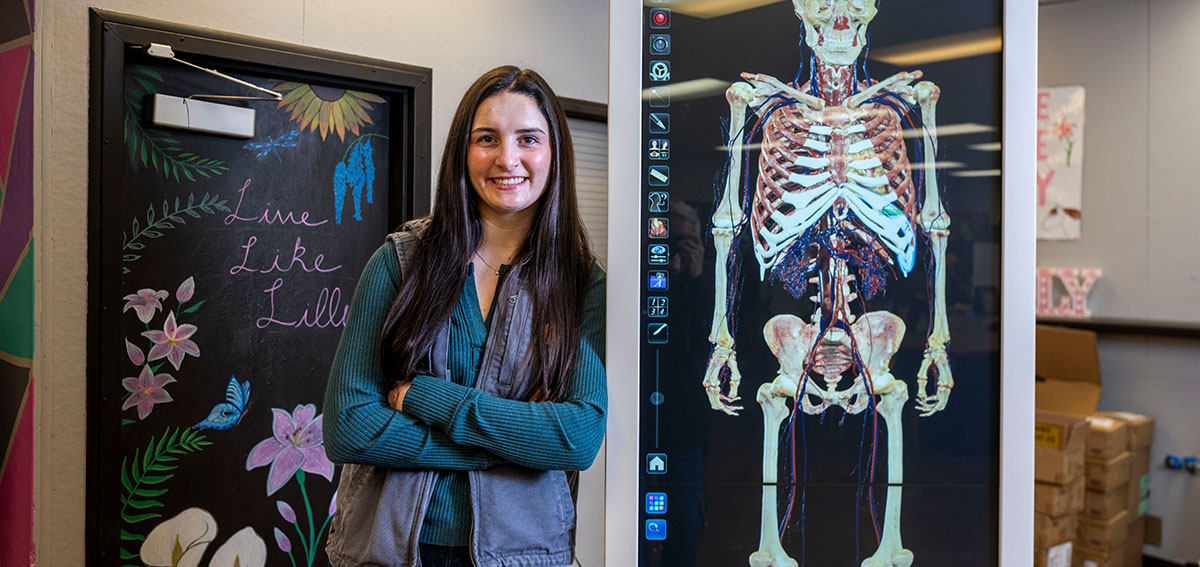|
Getting your Trinity Audio player ready…
|
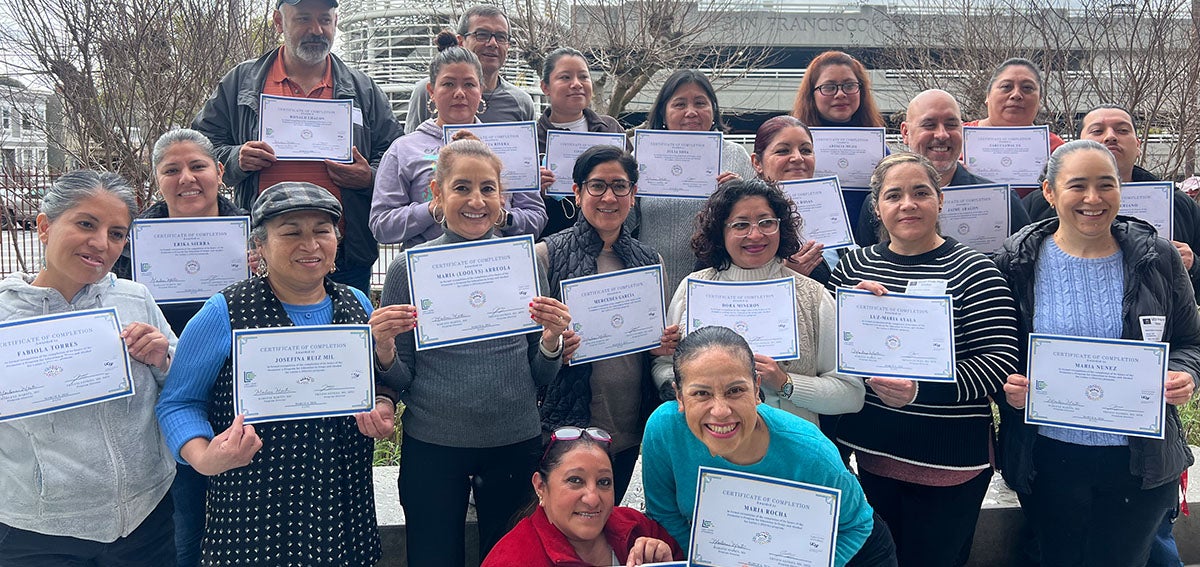
As the health care system expands the focus on the whole patient across delivery settings, promotores have been laying the foundation of patient-centered care for years in Latino/x communities across the state.
Promotores are community health workers who connect Latinos/x with medical, social, and economic resources. Over the years, promotores — who are usually Spanish-speaking — have been trained to help Latinos/x manage and prevent diabetes, heart disease, and other chronic conditions that disproportionately affect their community.
Already experts in the needs of their community, promotores train and prepare for new demands as they arise. During the COVID-19 pandemic, they were deployed to set up emergency programs and coordinate vaccination campaigns. This year, an increase in deaths related to overdose and substance use disorder (SUD) in San Francisco led to the Program for Education in Drugs and Alcohol for Latinx (PEDAL), an SUD training initiative for promotores. The organizers envision PEDAL as a training model that can be adopted widely in California.
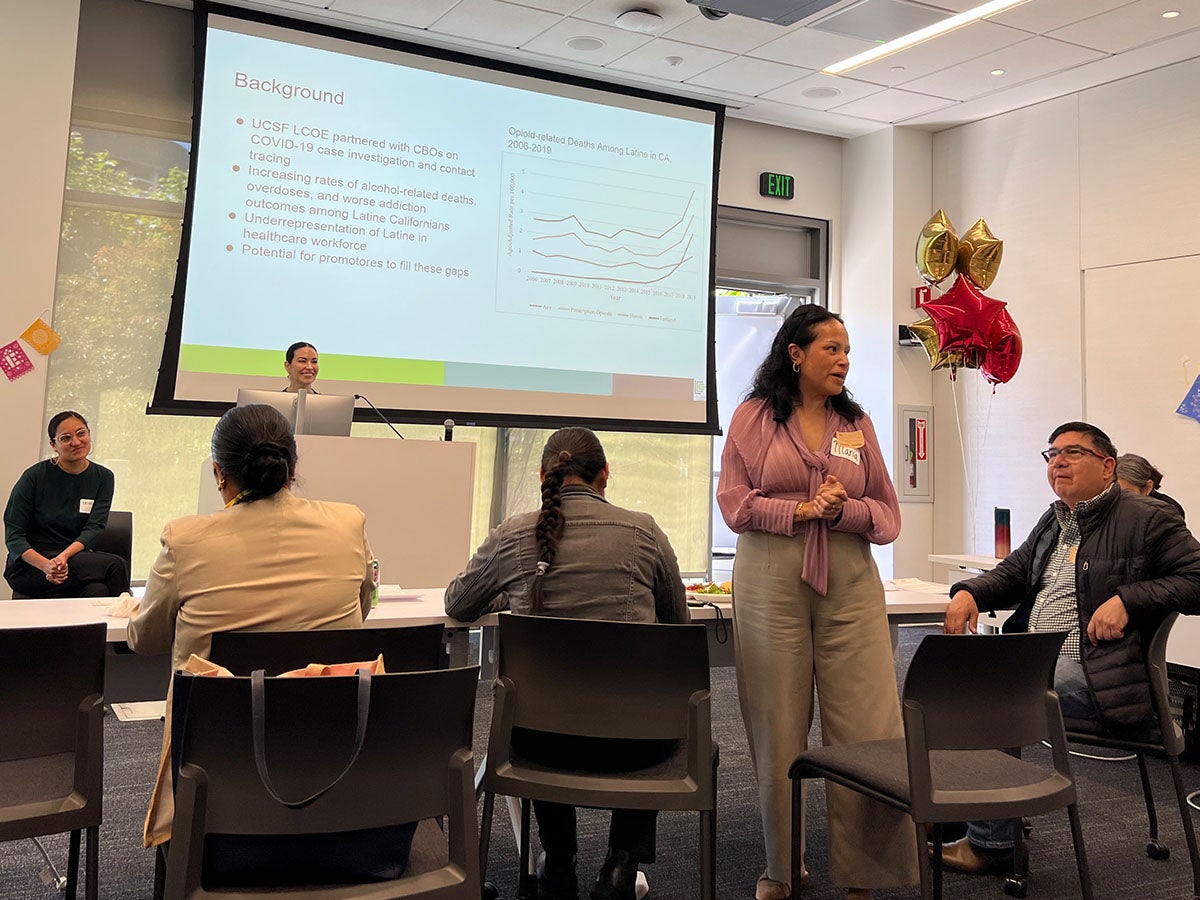
“There is a huge crisis in the Latino/x community when it comes to SUD,” said Marlene Martin, MD, director of addiction initiatives for the Latinx Center of Excellence and an associate professor of medicine at the University of California, San Francisco (UCSF). She co-designed the PEDAL program, which was created in partnership with local community-based organizations; Triveni DeFries, MD, MPH, an addiction specialist at Zuckerberg San Francisco General Hospital and assistant professor of medicine at UCSF; and the National Harm Reduction Coalition and is funded in part by the California Health Care Foundation. “The program builds on the promotores’ unique position as trusted community messengers,” Martin said.
Deaths from accidental drug overdoses have spiked in the city’s Latino/x community in recent years. In 2023, 148 Latino/x individuals died in San Francisco from drug overdoses, a 45% increase from 2022. During the same period, overdose deaths in the city rose 38% in the Black community and 4% in the White population. That trend factored into the San Francisco chief medical examiner reporting that 2023 was the city’s worst year on record for drug-related fatalities.
“The SUD crisis among Latinx people is worsened by language barriers, immigration status, fear, and the stigma that exists around alcohol and drug addiction,” said Martin, who also directs Zuckerberg San Francisco General Hospital’s Addiction Care Team, an interdisciplinary group she created to support the city’s marginalized residents.
Understanding the specific barriers and challenges Latino/x communities face drives PEDAL’s focus on the promotor workforce. “Promotores were essential to the Covid pandemic response in underserved Latinx communities across the state, and we still need them,” Martin said.
The curriculum was developed to help promotores recognize unhealthy drug and alcohol use, educate individuals about addiction, and link people with SUD to treatment. Twenty promotores participated in the four-month training effort. All the trainees are affiliated with PEDAL community partners, including Dolores Street Community Services; Mission Graduates; Good Samaritan Family Resource Center; and the Mission Economic Development Agency and its associated promotor collective, Promotoras Activas SF.
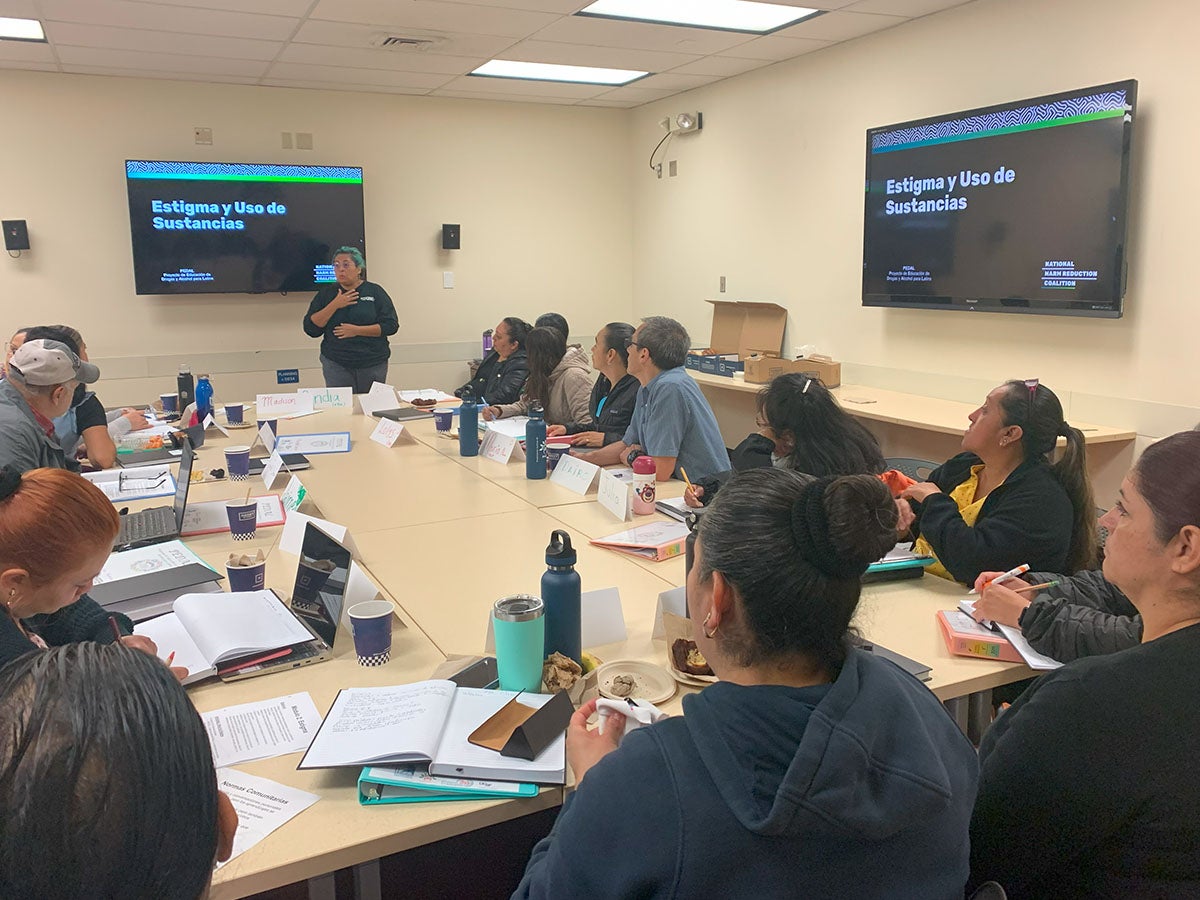
Martin said the training was eye-opening and empowering. “Training always makes us better promotores,” said Ronald Chacon, 53, an immigrant from Guatemala and a promotor who participated in PEDAL. “I learned harm reduction techniques and how to support those with SUD and prevent overdosing in a safe way. Some want to get treatment but do not know where to go or are afraid. A big concern is the stigma, which has such a negative impact on the community.”
Training as Part of a Larger Process
El Sol Neighborhood Educational Center in San Bernardino pioneered training programs for community health workers and promotores in the Inland Empire. It focuses on identifying, training, deploying, and supporting them to better bridge the Latino/x community with the services they need. The agency offers 300 training courses every year, including courses specific to SUD. “Promotores play an important role in identifying substance addiction at an early stage,” said El Sol’s executive director, Alex Fajardo.
Fajardo sees training as part of a larger workforce-building process. “Competencies and skills are not developed in one training. It’s not a transfer of knowledge,” he said. “It is all of us having needs, all of us having assets, all of us finding solutions. The goal is to improve and transform the life of promotores so they can transform the lives of others.”
Maria Nuñez, a native of Mexico who completed the PEDAL training, followed that process intuitively before becoming a promotora. “I needed to improve my own life to be able to help and support my children,” said the 45-year-old mother of two. She joined a group for pregnant women before her first baby was born and continued to participate in and learn from young mothers’ and parents’ groups as her children were growing up.
As a promotora, Nuñez uses her deep understanding of the Latino/x community to help others. “We are better prepared to support people and change their lives,” she said about the SUD training. “We are oppressed in this country. We are alone and have no family, which often leads to depression and addiction. Life as an immigrant is difficult.”
Breaking Down the Stigma
Promotoras Activas SF is a cooperative, registered business in San Francisco run by undocumented women who can be both community health workers and owners. Founded three years ago, it is made up of 19 promotores serving 100 people each. Four of those promotores completed the PEDAL training. “Right now, we are summarizing the most important topics from the training to create a presentation in the community,” said Dairo Romero, a lead promotor who serves as administrator of the co-op.
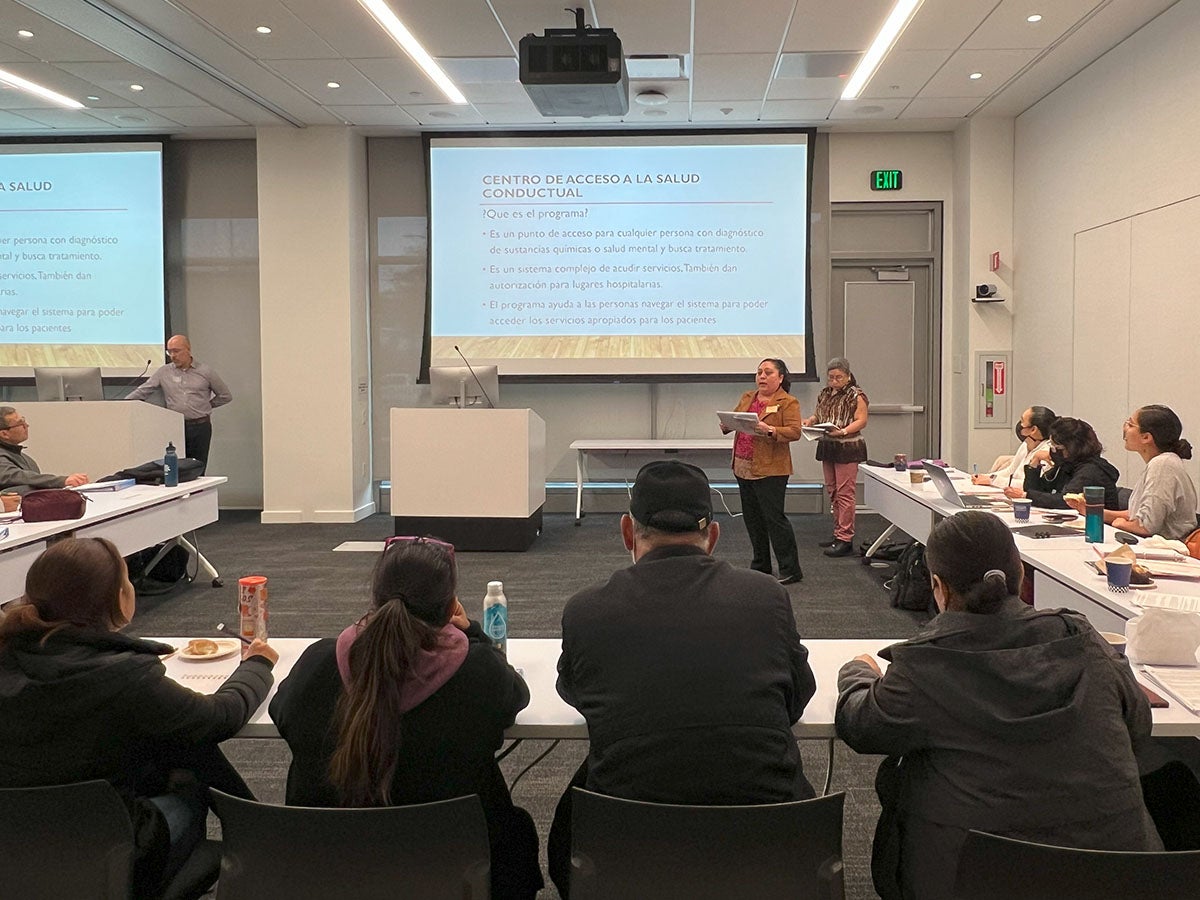
Romero said stigma is at the top of those topics. “It starts with the language used to refer to those with addiction, which is always derogatory,” he said. “If a man is addicted to alcohol, he is usually called ‘borracho,’ [drunk] by friends and families and considered a weak person.”
When it comes to drug use, Romero said Latinos/x don’t want to talk with their teenage children about it. “They just don’t have this conversation. There is no trust, no knowledge or ability to help them find resources.”
Nayli Jurado, 58, of San Bernardino is optimistic. “We are breaking down the stigma,” said Jurado, who was a nurse in her native Uruguay and has worked as a promotor in California for more than a decade. “The attitude toward mental health in general and SUD in particular started to change during Covid,” she said. “Families were at home all the time, they talked more, and the issue just could not be hidden anymore.”
During the pandemic, Jurado led virtual conversations about mental health, which she said goes hand-in-hand with SUD. It was easy for families to participate without leaving their home. “These sessions were very interactive, and people were more inclined to share their personal experiences,” she said.
Care Derived from Personal Experience
To Martin, awareness remains a key missing ingredient. “There is no education about SUD, and people don’t know what resources are available,” she said. PEDAL is addressing those deficits by expanding education to service providers and the community at large while improving the quality and delivery of SUD support to Latinos/x, she said.
PEDAL also aims to provide promotores with opportunities to become certified community health workers/promotores/representatives or drug and alcohol specialists and create additional career paths for them to pursue. Romero said Promotoras Activas’ next step after the SUD training is to seek funding and start advocating for organizations to provide the services.
Ultimately, however, the key to success for promotores is putting their personal experience to work as members of the communities they serve. “Preparation is important, but we shouldn’t forget that the essence of promotores goes beyond education,” Jurado said.
Her personal journey illuminates that reality. Over the years, Jurado received extensive training in mental health and SUD, which she says has made her a better promotor. But it was her own nephew’s fight with drug addiction and her efforts to help him that best prepared her to support others in similar situations.
Authors & Contributors

Silvina Martinez
Silvina Martinez is a public relations consultant specializing in health care and multicultural communications. A former newspaper reporter in Latin America and California and a medical interpreter herself, she works on health care initiatives and policies designed to expand access to care as well as educate and empower patients to take control of their health.


